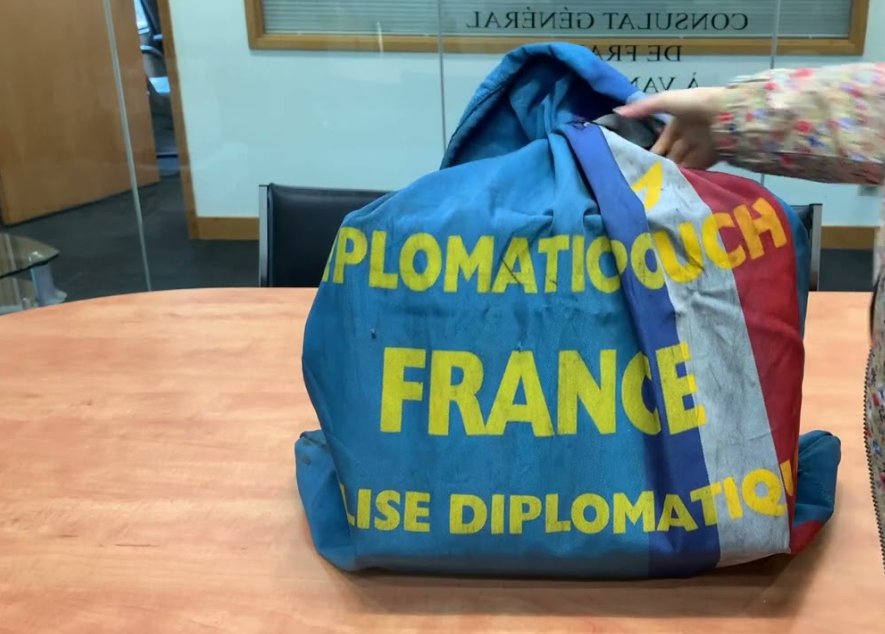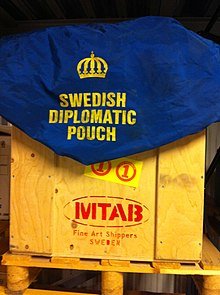In the world of international diplomacy, diplomatic pouch is a way communication is paramount. Nations exchange messages, documents, and information to build relationships, negotiate treaties, and ensure peace and cooperation. However, in this intricate web of global interactions, there exists a unique and discreet tool—the diplomatic pouch. Often shrouded in mystery and intrigue, the diplomatic pouch plays a crucial role in safeguarding secrets and building bridges between nations.
A Vessel of Confidentiality
The diplomatic pouch is more than just a bag; it is a symbol of diplomatic privilege and a sanctuary for confidential communications. Its origins can be traced back to ancient civilizations, but its modern incarnation is governed by international treaties and conventions.
One of the key principles of the diplomatic pouch is inviolability. This means that the pouch and its contents are exempt from search, inspection, or seizure by customs or security authorities of the host country. This privilege is enshrined in the Vienna Convention on Diplomatic Relations of 1961, a cornerstone of modern diplomacy.
The Purpose and Function of diplomatic pouch
The primary purpose of the diplomatic pouch is to facilitate the secure and confidential exchange of official documents and communication between embassies, consulates, and their respective governments. It carries a wide range of materials, including diplomatic notes, treaties, legal documents, and sensitive messages. Even in an era of instant digital communication, the pouch remains indispensable for several reasons:
- Security: The pouch provides a level of security that digital communication cannot match. It is immune to hacking, cyberattacks, or interception.
- Confidentiality: Diplomatic negotiations often involve sensitive information that must remain confidential. The pouch ensures that these secrets are kept safe.
- Efficiency: Diplomatic pouches are faster and more reliable than standard postal services or courier companies. They guarantee the swift delivery of critical documents.
- Formality: In the world of diplomacy, protocol and formality are significant. The use of the pouch maintains the traditional and respected methods of communication.
Modern Adaptations

While the concept of the diplomatic pouch remains unchanged, its implementation has evolved with the times. In the past, pouches were physical bags, but today they can take various forms, including briefcases, envelopes, and even digital storage devices. The use of electronic encryption and secure communication channels has also become common to enhance the pouch’s security.
Challenges and Controversies
Despite its significance in diplomatic circles, the diplomatic pouch has not been without controversy. In some instances, host countries have accused diplomats of abusing the privilege by using the pouch to smuggle contraband or engage in espionage. These situations have led to discussions and disputes over the boundaries of diplomatic immunity and the limits of the pouch’s inviolability.
However, it is essential to recognize that the diplomatic pouch primarily serves as a vital tool for the peaceful and efficient conduct of international relations. It embodies the principle of diplomatic reciprocity, where nations afford each other the same privileges and immunities to foster trust and cooperation.
The Diplomatic Pouch in a Changing World

As the world evolves and becomes more interconnected, the diplomatic pouch must adapt to new challenges. Here are some ways in which the pouch continues to play a vital role in modern diplomacy:
- Digital Security: In an era of cyber threats and digital espionage, the importance of the diplomatic pouch’s physical security cannot be overstated. While electronic communication is prevalent, there are instances where sensitive documents and physical objects must be transported securely. The pouch provides a reliable means of doing so.
- Humanitarian Aid: Diplomatic pouches are not limited to official government documents. They also serve as conduits for humanitarian aid in times of crisis. Medical supplies, relief materials, and messages of support can be transported swiftly and securely to embassies in affected regions.
- Consular Services: Diplomatic missions often provide consular services to their citizens abroad. The pouch facilitates the secure exchange of passports, visas, and other vital documents between embassies and their citizens.
- Cultural Exchange: Beyond official documents, the diplomatic pouch is also instrumental in promoting cultural exchange. It carries invitations to cultural events, artwork, books, and other items that foster mutual understanding and goodwill between nations.
- Bilateral Relations: Diplomatic pouches continue to serve as a symbol of diplomatic relations between countries. The exchange of letters of credence, formal diplomatic notes, and other official documents through the pouch is a crucial step in establishing or maintaining diplomatic ties.
Challenges and Responsibilities

While the diplomatic pouch remains a cornerstone of diplomacy, it is not without its challenges. Ensuring that it is not misused for illegal activities, such as smuggling or espionage, requires vigilance and cooperation between host countries and diplomatic missions. The Vienna Convention on Diplomatic Relations lays out the rules and responsibilities governing the use of the pouch, helping to maintain its integrity.
In conclusion, the diplomatic pouch remains a powerful and indispensable tool in modern diplomacy. It upholds the principles of confidentiality, inviolability, and trust that are fundamental to international relations. As the world continues to change and face new challenges, the pouch evolves alongside it, adapting to the demands of a globalized and interconnected diplomatic landscape. It stands as a symbol of the enduring need for diplomacy, cooperation, and respect among nations
ALSO READ :Putin Praises PM Modi’s ‘Make In India’ In Automobiles: ‘Doing The Right Thing’




































